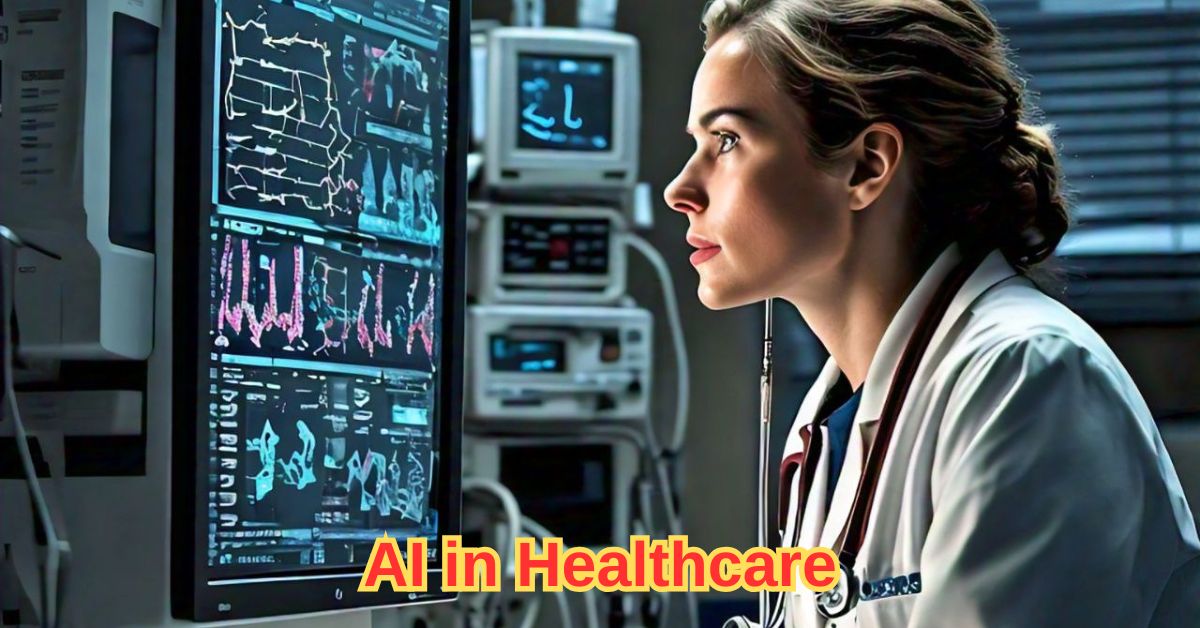INTRODUCTION
Artificial Intelligence (AI), for instance, is revolutionizing healthcare in a new way of diagnosing diseases, treating, and managing diseases. Leveraging complex algorithms, healthcare systems globally have thus been saving lives, delivering positive outcomes for patients, and optimizing resource use. Whether it is unprecedented accuracy in diagnosing diseases or tailoring specific treatment plans, AI is slated to revolutionize the medical landscape.
AI in Healthcare: What is AI?
AI in healthcare represents the use of algorithms, machine learning models, and data-driven systems to recreate some of the highest functions of the human brain as a part of medical processes. Technologies such as NLP, deep learning, and neural networks thus enable AI to analyze complex datasets, automate repetitive tasks, and even predict medical outcomes.
Applications range from patient diagnosis to administrative automation, meaning to result in efficiency and precision while delivering care.
The advent of algorithms for healthcare
Healthcare algorithms have changed a lot over the years, from such basic, rule-based systems all the way to very modern neural networks capable of deep analysis. From basic structured datasets and simple logic, today’s AI can handle unstructured data like medical images and free-text notes. This transformation has been fueled by developments in computational power and big data accessibility.
The Machine Learning Role in Diagnosis:
Machine Learning (ML) has transformed the diagnosis of disease, having achieved unprecedented accuracy in the detection of conditions like cancer, diabetes, and neurological disorders. Millions of medical records are analyzed using ML algorithms that identify subtle patterns or correlations usually overlooked by human observers. For instance, AI-based analytical tools like IBM Watson Health present clinicians with actionable insights within a record time.
Image and radiology application of AI
Radiology has been one of the biggest beneficiaries of AI. Algorithms can analyze X-rays, MRIs and CT scans and detect even minute abnormalities, such as tumors, fractures, or infections, with remarkable precision. Such technologies as Google’s DeepMind Health have demonstrated how AI can outperform radiologists in the diagnosis of eye diseases and potentially prevent blindness.
Artificial Intelligence in Medical Predictive Analytics
Predictive analytics engages AI capabilities to predict outbreaks of diseases, hospitalization decline, and even patient readmission rates. Algorithms usually enable healthcare service providers to apply preventive measures simply based on a better understanding of historical and real-time data. For example, during the COVID-19 pandemic, AI models helped, for example, in monitoring infection rates and distributing more effective services.
AI in Personalized Treatment Plans
Traditional medicine, meanwhile, tends to use a one-size-fits-all approach, but AI has changed this game in offering the best chance for tailoring care strategies. AI draws on genetic data, lifestyle considerations, and a patient’s past to tailor care plans. This is most notably the case in oncology, where precision medicine matches therapies to the unique genetic makeup of a patient’s tumours.
Surgical Precision with Robotics
The procedure through robotics, enabled by AI, is unparalleled for precision in procedures that carry a risk of great complexity. Automated robotics equipment, like the da Vinci Surgical System, enables surgeons to conduct minimally invasive surgery with faster recovery and lower chances of complications occurring.
AI in Drug Discovery
The pharmaceutical industry is embracing artificial intelligence to automate drug discovery. AI algorithms predict molecular behaviour; hence, the time and money it takes for new drugs to hit the market are significantly lessened. There is some promise here from platforms like BenevolentAI: ALS and Parkinson’s may indeed have probably effective treatments.
Mental Health Interventions with AI
AI-based mental health tools, such as chatbots and virtual therapists, offer accessible and economical care. Those systems can begin with a first consultation, monitor mental health patterns, and even provide therapeutic interventions. This ability to analyze emotional states through speech and text enhances the effectiveness of AI in early detection and treatment.
Integration of AI and Healthcare Wearables Today, wearables like smartwatches and trackers that check heart rates, and sleep patterns, and can even determine arrhythmias contain AI algorithms. For example, devices like the Apple Watch have been proven lifesavers by informing patients to see a doctor about some irregular heart rhythms detected.
AI and Overcoming Healthcare Challenges
AI does address many of the fundamental challenges in health, such as scarcity, oversight, and delays in the provision of treatment. For example, telemedicine with AI ensures that consultations reach even the most remote patients, thus reducing scarcities in health input.
FAQs
AI has boosted health care in the following ways.
It improves diagnostic accuracy, personalizes treatment patterns, decreases costs, and enhances operational efficiency in healthcare systems.
Can AI replace doctors?
AI is not a replacement for physicians but merely a means of adding to their capabilities; physicians can focus on appropriately treating patients.
How does AI improve drug discovery?
This accelerates the drug candidate identification process by using molecular and clinical data and reduces the timelines associated with research.
Is AI Safe in Healthcare?
AI in healthcare is safe and more beneficial if it is implemented alongside strong ethical and regulatory frameworks.
What are the limitations of AI in healthcare?
AI faces challenges such as data privacy concerns, algorithmic bias, and the need for extensive training data. How is AI applied in emergency care?
AI may assist in triaging, case prioritization regarding urgency, and resource optimization during an emergency. Conclusion This is not only a technological development but rather a life-saving revolution in medicine- from precision diagnosis to innovative research, AI transformation transforms the very idea of healthcare service delivery. And as we increasingly integrate such intelligent systems into medical practice, the possibilities to improve and save human health are limitless.
